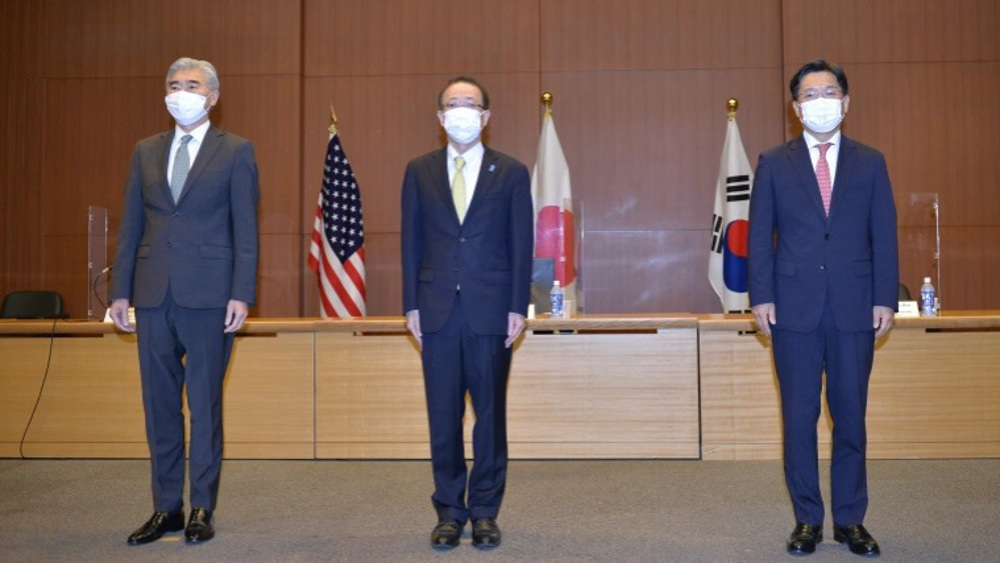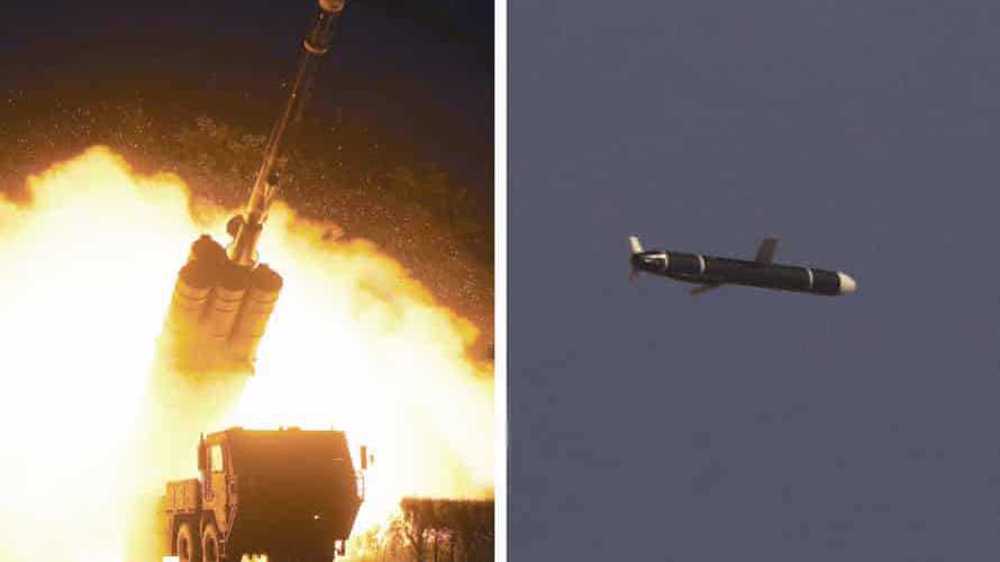After Pyongyang’s test-fire, US, South Korea, Japan representatives meet on North Korea
Officials from the United States, South Korea, and Japan have held a meeting in Tokyo to discuss North Korea, a day after Pyongyang said it had conducted a “strategic” missile launch inside its own territorial waters.
In his opening remarks on the Tuesday meeting, Sung Kim, the US special envoy for North Korea, said “the recent developments in the DPRK [Democratic People’s Republic of Korea] are a reminder of the importance of close communication and cooperation from the three countries.”
Sung Kim, Takehiro Funakoshi, the director-general of the Japanese Bureau for Asian and Oceanian Affairs, and Noh Kyu-duk, who is the South Korean Foreign Ministry's special representative for the Korean Peninsula, discussed ways to initiate dialog with Pyongyang in pursuit of demilitarization on the Korean Peninsula.
Kim said Washington was open to diplomacy with North Korea, stressing that “we see to make tangible progress that increases the security of the United States and our allies.”
The trilateral meeting came as US President Joe Biden has expressed unwillingness to meet North Korean leader Kim Jong-un. Earlier in March, when White House Press Secretary Jen Psaki was asked by reporters if Biden's diplomatic approach to Pyongyang would include sitting down with Kim, Psaki said, “That is not his (Biden's) intention.”
Denuclearization talks have been stalled since 2019, with North Korea demanding sanctions relief. Former US President Donald Trump had held three meetings with the North Korean leader, and exchanged a series of letters with him, too, but bilateral diplomacy did not last long as Trump refused to remove sanctions in exchange for several steps by the North toward demilitarization.
On Monday’s testing, the North hailed its new missiles as a “strategic weapon of great significance,” which is an “effective deterrence means for more reliably guaranteeing the security of our state and strongly containing the military maneuvers of the hostile forces.”
Japanese officials and some US experts said North Korea’s missile test-fire was a “new threat” to the region, while Pyongyang says the United States’ substantial military presence on the peninsula threatens the North Korean national security.
VIDEO | Yemen: A bone in Israeli neck
D-8’s role in Iran’s economy after Cairo summit
China slams US as ‘war-addicted’ threat to global security
China ‘firmly opposes’ US military aid to Taiwan
VIDEO | Press TV's News Headlines
President Yoon Suk Yeol to be removed from office
At least 19 Gazans killed by Israeli airstrikes since dawn: Medics
Leader: Iran neither has nor needs proxy forces











 This makes it easy to access the Press TV website
This makes it easy to access the Press TV website